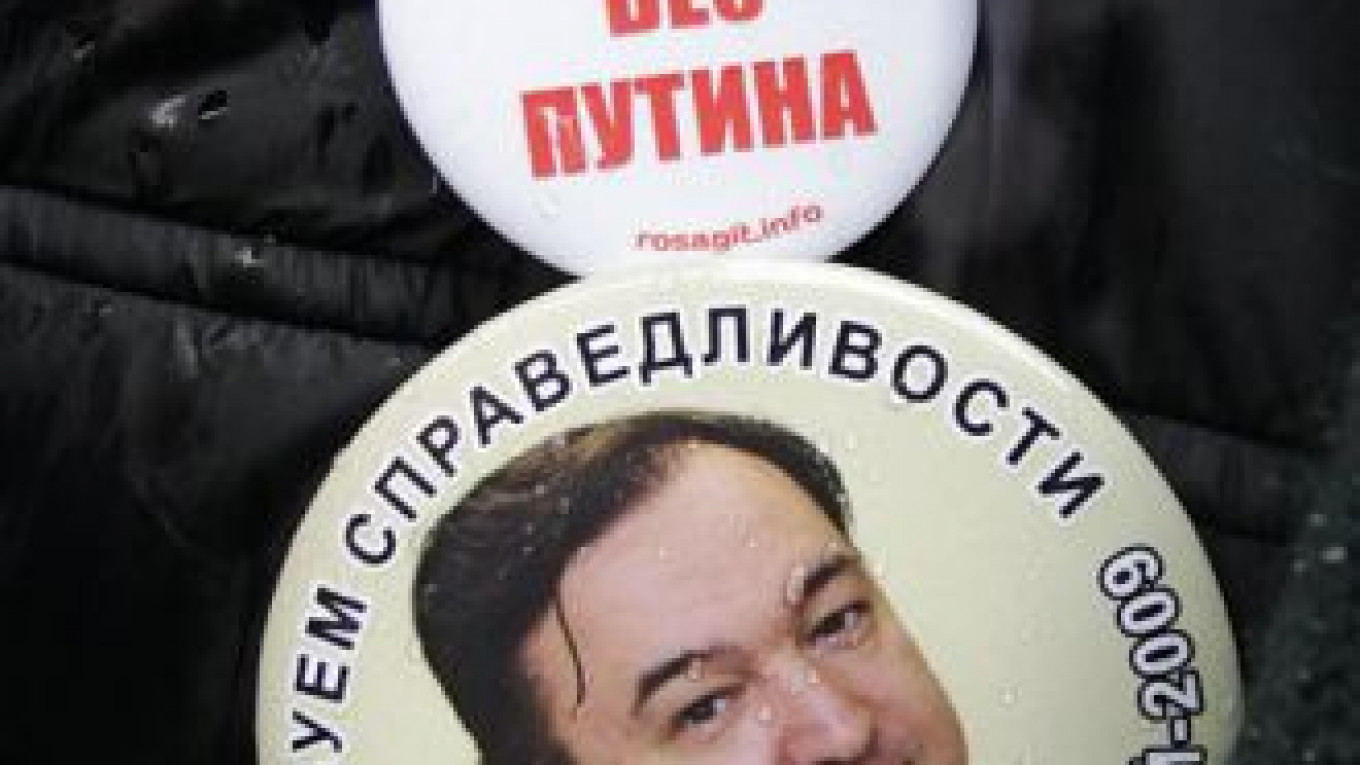Russia's ambassador to the United States warned the U.S. on Wednesday that legislation to ban Russian officials implicated in the 2009 jail death of lawyer Sergei Magnitsky could damage relations between the two countries.
The U.S. State Department expressed support last week for the so-called Magnitsky Act, which is being considered by Congress and would impose sanctions on foreign officials accused of human rights abuses.
"Trying to use it as an instrument of pressure on us will not bring any results except to damage Russian-U.S. relations," Ambassador Sergei Kislyak said on Voice of Russia radio.
He also said the U.S. government was showing a lack of respect for Russia by intervening in the investigation into Magnitsky's death. This "is Russia's internal affair and is being investigated in accordance with Russian law," he said in the interview, Interfax reported.
Kislyak and Foreign Minister Sergei Lavrov made similar comments last month, signaling Moscow's strong irritation with U.S. actions on the case.
Magnitsky died after a savage beating by prison guards in a Moscow detention center in November 2009. He was arrested a year earlier by Interior Ministry officials whom he had accused of defrauding the government of millions of dollars. Although President Dmitry Medvedev ordered an investigation shortly after his death, no one has been convicted of wrongdoing.
The lawyer for Magnitsky's mother said Wednesday that investigators had rejected a request he had filed for further investigation into prison officials, Interfax reported.
Investigators had accused two jail doctors of neglect in the case, but charges were later dropped against one because the statute of limitations ran out.
Britain announced this week that it has adopted immigration rules that could also ban Magnitsky suspects. The new rules bar entry to foreign officials accused of human rights violations in their home countries.
Last summer, the U.S. State Department said it had blacklisted 60 Russian officials implicated in Magnitsky's death, drawing a protest from Moscow, which later said it had blacklisted 11 U.S. officials that it accused of human rights abuses against Russian citizens. Russia has not identified the banned U.S. officials or the citizens.
A Message from The Moscow Times:
Dear readers,
We are facing unprecedented challenges. Russia's Prosecutor General's Office has designated The Moscow Times as an "undesirable" organization, criminalizing our work and putting our staff at risk of prosecution. This follows our earlier unjust labeling as a "foreign agent."
These actions are direct attempts to silence independent journalism in Russia. The authorities claim our work "discredits the decisions of the Russian leadership." We see things differently: we strive to provide accurate, unbiased reporting on Russia.
We, the journalists of The Moscow Times, refuse to be silenced. But to continue our work, we need your help.
Your support, no matter how small, makes a world of difference. If you can, please support us monthly starting from just $2. It's quick to set up, and every contribution makes a significant impact.
By supporting The Moscow Times, you're defending open, independent journalism in the face of repression. Thank you for standing with us.
Remind me later.






